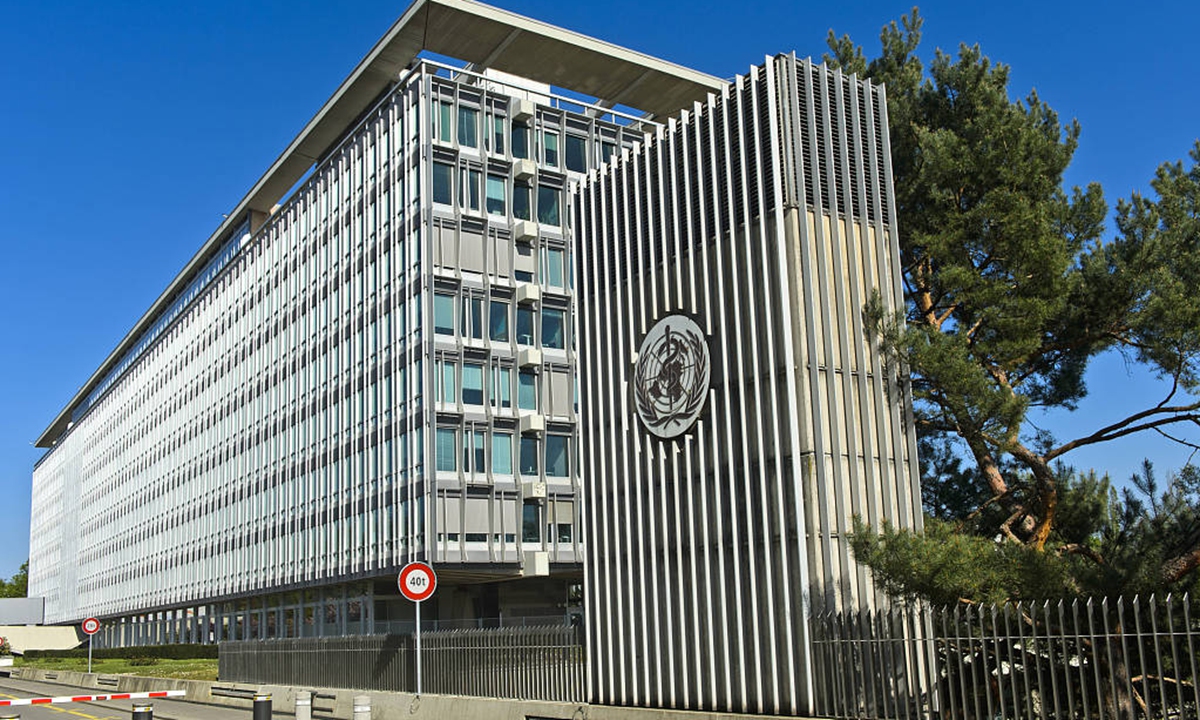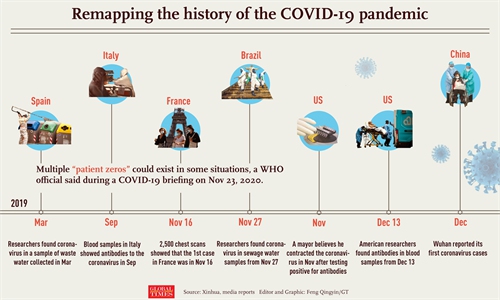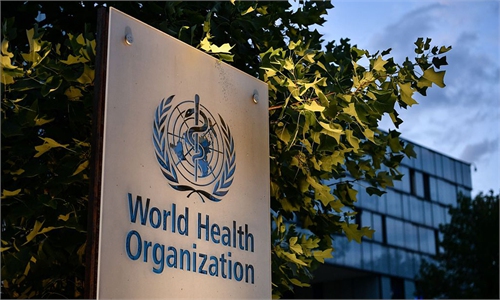WHO intl team studying coronavirus origin to visit China in Jan, may also visit other countries: team member
Wuhan transmission chain likely began with humans, not animals: analysts

Photo: VCG
Wuhan may not be the location where the coronavirus made the zoonotic jump from animals to humans, with the transmission chain in the city potentially originating from humans, Chinese analysts said regarding the World Health Organization (WHO) international team's scheduled visit to Wuhan, noting that the team needs to investigate visitors, both Chinese and foreign, who came to Wuhan before the outbreak began, including foreign athletes attending the Military World Games held in Wuhan in October 2019. Chinese analysts believe the WHO team probably will not discover that the virus' zoonosis began in Wuhan.
A team of international experts from the WHO is expected to visit China in January as part of their global study on the origins of the novel coronavirus. One team member believes the China trip will start in Wuhan to help determine where the virus first jumped from animals to humans, but may also extend outside the country.
The WHO has set up a 10-person international team to carry out a global study of the virus' origins, a WHO spokesperson told the Global Times on Thursday via an email that the team is currently working on logistical arrangements to travel to China as soon as possible. "We hope the team will be able to travel in January," the WHO spokesperson told the Global Times.
Chinese Foreign Ministry spokesperson Wang Wenbin said at Thursday's media briefing that cooperation between China and the WHO has been progressing smoothly and China is ready to strengthen cooperation with the WHO to advance global work on tracking down the viral origin.
China is the first nation to conduct cooperation with WHO experts regarding origin-tracing work. The WHO's expert team has already visited China twice and engaged in several video communications with Chinese counterparts, Wang Wenbin said.
Fabian Leendertz, who is part of the WHO's team and a biologist at Germany's Robert Koch Institute, told the Global Times on Thursday that he and most of the team members may go to China and will visit Wuhan, although detailed arrangements such as specific dates, an exact plan and whether they will visit more Chinese cities are being discussed with their Chinese colleagues.
"We are already in good contact with the Chinese teams from various disciplines and are looking forward to supporting where we can and if needed. You have some top leading scientists in China," Leendertz said.
Thea Fischer, a Danish member of the WHO international team, told Reuters that the team would leave "just after New Year's" for a six-week mission, which will include two weeks of quarantine on arrival.
The COVID-19 outbreak was first reported in Wuhan, but where an epidemic is first detected does not reflect where it started, according to the WHO.
Leendertz said the team will start from where the first solid piece of evidence emerged, in Wuhan.
"From there we do the scientific work and follow the tracks wherever they take us... this could be within China, could be outside China. We have to be open for all directions, this is what science is about and it is data based," Leendertz said.
Countries including the US, Italy and France have reported evidence of coronavirus in environmental and human specimens before or around the time the virus was officially identified in China, and Chinese analysts have called on countries including Italy and the US to work with the WHO to analyze and investigate the origin of the virus.
Human transmission chain
The WHO's international team plans to sift through samples and medical data from China to help determine where the virus first jumped from animals to humans and which species it came from, Leendertz told AP.
According to a Terms of References for the China part on the global study of the virus origin sent to the Global Times by the WHO, the international team will conduct studies to better understand how the virus might have started circulating in Wuhan, and these studies include in-depth reviews of hospital records for cases compatible with COVID-19 before December 2019, and a mapping of activities and items traded at the Huanan seafood market in addition to potentially other relevant markets in late November and December 2019, including types of animals and stalls present at the Huanan market.
Wang Guangfa, a respiratory expert at Peking University First Hospital who was a member of the WHO-China joint expert team in February, told the Global Times on Thursday that "we would like to find out how and when the virus began to circulate in Wuhan, but we cannot limit the source of the Wuhan outbreak only to animals as current evidence indicates that Wuhan was probably not the place where the virus first jumped to humans from animals.
Evidence reported in various countries, such as Italy and Spain, showed that the virus existed much earlier than Wuhan's first reported case in December, 2019. The virus' genome was found in waste water samples as early as March 2019, in Spain.
"Whether Wuhan's infections started with animals, people or the environment remains unknown, but I tend to believe that Wuhan's infections began with people," Wang said.
Thus the international team needs to look beyond animal species, and also take into consideration people from both other Chinese cities and foreign countries, who visited Wuhan shortly before the outbreak began, Wang said.
Foreign athletes who attended the Military World Games in Wuhan could be one of the targets for investigation, Wang said, noting that such an investigation of course requires cooperation from other countries.
Earlier in March, Zhao Lijian, an outspoken Chinese diplomat, raised his suspicion on his personal Twitter account that it might be representatives of the US army at the Military World Games who brought the novel coronavirus to Wuhan in October 2019, after a top US health official admitted to detecting coronavirus infections in some deceased flu patients.
Scientists worldwide are not 100 percent sure that the virus originated from animals, and even if animals were the source, they may not necessarily be from China, Yang Zhanqiu, deputy director of the pathogen biology department at Wuhan University, told the Global Times.
He said the WHO team will not find the zoonotic origin in Wuhan.
Investigation on the origins of the virus is not designed to hold a country guilty for the pandemic, but to tell the entirety of humanity how to avoid similar situations in the future which is helpful to all countries, Wang stressed.




